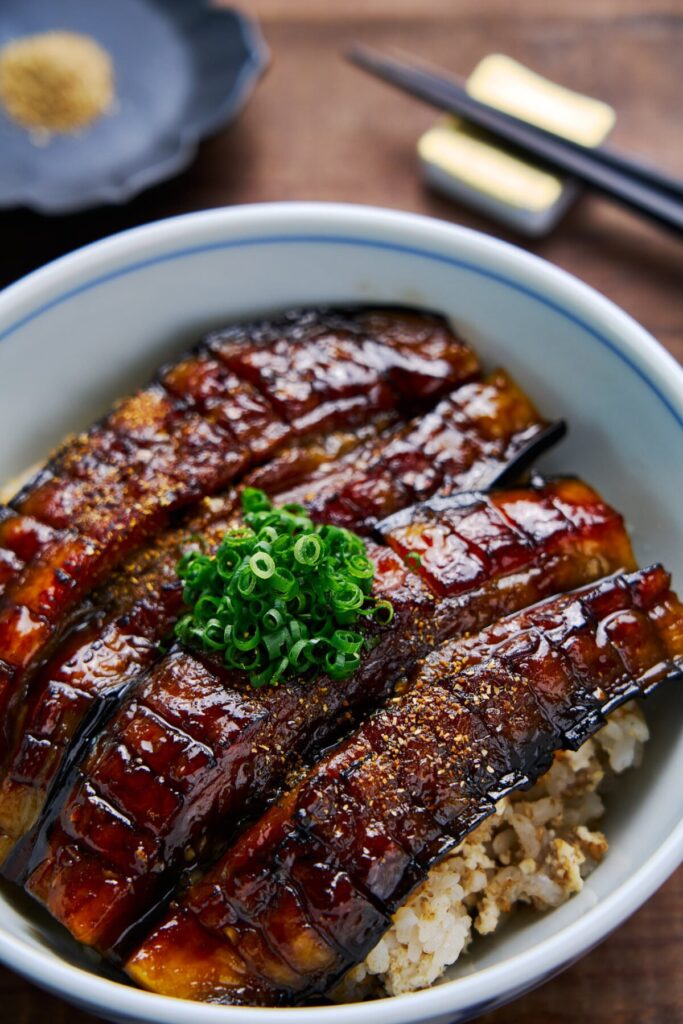Unagi sauce, a beloved Japanese glaze known for its rich, savory flavor, is traditionally made with ingredients that are not vegan. This often leaves vegans wondering if they can enjoy this delicious condiment without compromising their dietary choices. Thankfully, the answer is yes! Vegan unagi sauce has become increasingly popular, offering a plant-based alternative that captures the essence of traditional unagi sauce while adhering to vegan principles.
This article delves into the world of vegan unagi sauce, exploring its ingredients, substitutes for non-vegan components, and the benefits it offers. We’ll also guide you through making your own delicious vegan unagi sauce at home, allowing you to savor this flavorful glaze in a way that aligns with your values.
Vegan Unagi Sauce Explained
Vegan unagi sauce is a plant-based version of the traditional Japanese glaze, typically used as a topping for grilled eel dishes. It boasts a similar savory and umami flavor profile, achieved through carefully selected ingredients that mimic the taste and texture of the original. The key difference lies in the substitution of non-vegan components like mirin and sake with plant-based alternatives.
This shift allows vegans to enjoy the rich, complex flavors of unagi sauce without consuming animal products. Vegan unagi sauce is often made with a base of soy sauce, rice vinegar, sugar, and spices, combined with substitutes for mirin and sake that provide the necessary sweetness and depth of flavor.
Traditional Unagi Sauce Ingredients
Traditional unagi sauce relies on several key ingredients to achieve its signature taste:
- Mirin: A sweet rice wine used to add a delicate sweetness and glossiness to the sauce.
- Sake: A Japanese rice wine that contributes a subtle alcoholic note and enhances the overall flavor complexity.
- Soy Sauce: Provides the base savory foundation for the sauce, lending its characteristic umami richness.
- Sugar: Balances the saltiness of the soy sauce and adds sweetness to the glaze.
- Other Ingredients: Depending on the recipe, additional ingredients like ginger, garlic, or dashi (a Japanese stock) may be incorporated to further enhance the flavor profile.
Plant-Based Substitutes for Mirin and Sake
The key to creating a vegan unagi sauce lies in finding suitable substitutes for mirin and sake:
- Mirin: Agave nectar, rice malt syrup, or even a combination of sugar and white wine vinegar can effectively mimic the sweetness and texture of mirin.
- Sake: Dry white wine, apple cider vinegar, or even non-alcoholic sake alternatives are excellent substitutes for sake in vegan unagi sauce recipes.
Making Vegan Unagi Sauce at Home
Creating your own vegan unagi sauce is surprisingly simple and allows you to customize the flavor profile to your liking:
- Gather Ingredients: Combine soy sauce, rice vinegar, sugar, agave nectar (or other mirin substitute), and spices like ginger and garlic.
- Simmer: Gently simmer the mixture over low heat until it thickens slightly, stirring occasionally to prevent sticking.
- Adjust Flavor: Taste and adjust the sweetness, saltiness, or spiciness according to your preference.
- Cool & Store: Allow the sauce to cool completely before transferring it to an airtight container for storage in the refrigerator.
Benefits of Vegan Unagi Sauce
Choosing vegan unagi sauce offers several advantages:
- Ethical Considerations: It aligns with a compassionate lifestyle by avoiding animal products.
- Healthier Choice: Plant-based sauces often contain less sodium and saturated fat compared to traditional versions.
- Flavorful & Versatile: Vegan unagi sauce delivers the same rich, savory taste as its traditional counterpart, making it perfect for various dishes.
Conclusion
Vegan unagi sauce has emerged as a delicious and ethical alternative to traditional unagi sauce, allowing vegans to enjoy this beloved Japanese glaze without compromising their dietary choices. By understanding the ingredients, substitutes, and simple recipe for making vegan unagi sauce at home, you can savor its rich, umami flavor while embracing a plant-based lifestyle.



